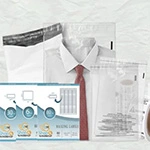What should we consider when renting a car on vacation
A car in good working order and clean can contribute to a more pleasant and joyful trip.
When renting a car on vacation, here are some important things you should keep in mind:
- Cost: check the total cost of the rental, including any additional taxes and insurance, to avoid unpleasant surprises when you return the car.
- Car type: choose a car that suits your needs and the number of passengers. Also, consider the type of terrain you will be traversing during your vacation.
- Insurance: check carefully the insurance included in the rental and the additional insurance options available. Make sure you are covered in the event of an accident or damage.
- Fuel policy: check the rental company’s fuel policy and make sure you know exactly how to return the car.
- Rental terms: check the company’s rental terms carefully, including the maximum mileage allowed and any restrictions on where you can drive.
- Customer service: make sure you choose a car rental company with good customer service that can help you with any problems or questions.
- Advance booking: rent your car a few weeks before your holiday to give yourself time to compare prices and make sure you find a car available for the period you want.
It is important to do your research and check all the details carefully before renting a car on vacation to avoid any unpleasant problems and have a pleasant and worry-free driving experience.

The type of car recommended for vacation rental depends on several factors, such as the destination, the number of passengers, the type of terrain you will be driving and the goals of the trip.
- If you will be traveling long distances and crossing varied terrain, such as mountainous areas or areas with unpaved roads, a four-wheel drive car or SUV may be a good choice, as they are designed to handle rough terrain and can provide comfort additional.
- If you are traveling in busy cities or short distances, a compact or mid-size car may be a better choice as they are easier to drive and park in small spaces.
- If you are a larger group or need more luggage space, a car with a large trunk, such as a station wagon or large SUV, may be a better choice.
- You also need to consider personal preferences and needs, such as comfort, fuel economy or state-of-the-art technology.
My recommendation would be to choose a car that suits your needs and travel style, and to make the best choice, you should compare different car options, check the total cost of the rental and analyze with pay attention to all the details in the rental contract.
Usually, when you rent a car, it comes with a full tank of fuel, and the rental contract specifies that the car must be returned with the same level of fuel. This is known as the “full-full” fuel policy and is a common practice in the car rental industry.
There are several reasons why the car must be returned with a full tank of fuel:
- To avoid surcharges: Most car rental companies charge surcharges if the car is returned with a lower fuel level than specified in the rental agreement. These fees can be higher than the actual price of the fuel, so it is more cost effective to fill up the tank before returning it.
- To provide a uniform experience: The full-full fuel policy ensures a uniform experience for all customers of the car rental company, which means that all customers receive the car with a full tank of fuel and must return it the same. This makes the rental process simpler and more efficient.
- To maintain fleet efficiency: Car rental companies need to maintain a fleet of cars in good working order, and consistent fuel levels can help maintain car efficiency and performance.
The full-full fuel policy is a common practice in the car rental industry and ensures a uniform experience for all customers. Returning the car with a full tank of fuel can help avoid extra charges and maintain the car’s efficiency and performance.
It is important that the rental car is insured to protect you against any damage or accidents that may occur during the rental period.
Car rental companies generally offer basic insurance included in the rental price, which covers damage to the vehicle during the rental. This basic insurance can vary from company to company, but usually covers damage to the vehicle during the rental, theft or vandalism of the car.
However, basic insurance may have a coverage limit and sometimes does not always cover all damages or expenses. Therefore, it is recommended that you check the insurance terms and conditions carefully and ensure that you have adequate coverage for your needs.
You can also opt for additional or optional insurance, such as excess damage insurance, which can reduce or eliminate the amounts you have to pay in the event of an accident or damage to your car. In addition, you can opt for third party insurance, which can cover damage to other cars or property if you are involved in an accident.
Make sure you check the insurance terms and conditions carefully and that you have adequate coverage for your needs.
Most car rental companies impose a mileage limit on rental cars. This is a condition that appears in the rental terms and conditions and may vary by company and type of rental car.
The mileage limit can be expressed as a fixed number of kilometers per day, or it can be a total mileage limit for the entire rental period. If you exceed the limit imposed by the company, you will be charged an additional amount for each kilometer traveled over the limit.
It is important to check the rental terms and conditions before renting a car to find out what the mileage limit is and how much each additional kilometer will cost you. It is also important to plan your trip so that you do not exceed the mileage limit and avoid additional costs.
You may also be able to find car rental companies that do not impose a mileage limit, but these may be more expensive and you may have to pay a higher amount to take advantage of this option.
It is important to post an honest review after renting a car because it can help other people who want to rent a car. Reviews are an important source of information for those looking for a rental car and can provide an objective perspective on your experience.
An honest review can be useful to other potential customers as it can provide information about the condition of the car, the services offered by the rental company, the rental policy, as well as any issues or problems encountered during the rental.
By writing an honest review, you can also help the car rental company improve its service and take action if there are any problems or shortcomings. In addition, by expressing your honest opinion, you can help raise the quality of service and customer expectations.
















